
Projects
Projects
-
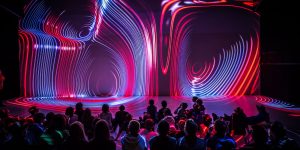
Immersify
They almost make us forget the world around us: Virtual Reality (VR) applications let us dive deep into images and videos, promising interactive experiences. To lead immersive media from a niche phenomenon to a more widespread practice in the consumer market, the three-year EU-funded project Immersify took to the task of research and development with…
-
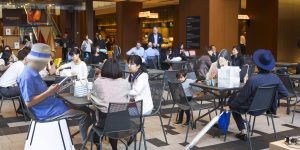
School of the Future Festival 2017: Out of Control
With the first edition of “School of the Future”, the Ars Electronica Futurelab brings discussions about technology, society and art right into the heart of Tokyo. The event, which takes place in the Tokyo Midtown urban complex, includes an exhibition, discussions, lectures and workshops on future issues and their potential development.
-
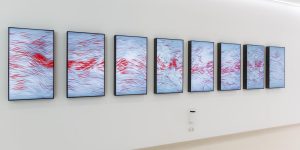
insight | out
insight | out, a work of media art by the Ars Electronica Futurelab, is a portrait of Oberbank AG Linz rendered on a fragmented frieze made up of eight video screens. The medium itself thus evokes the multiplicity of influences that flow into this portrait – the values that this long-established financial institution represents, the…
-

Sky Compass
A collaboration between Japanese telecommunications giant NTT and the Ars Electronica Futurelab, Sky Compass is the first step towards a vision of employing drones (or UAVs, Unmanned Aerial Vehicles) in public signage, guidance and the facilitation of traffic.
-
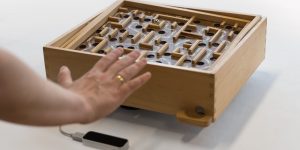
MANUACT
How can gesture research be presented so that it is comprehensible by everyone? How do you identify natural gestures for specific applications? What are the origins of such gestures, and how can they best be used in future interfaces? The Ars Electronica Futurelab has been collaborating with Chemnitz University of Technology to get to the…
-
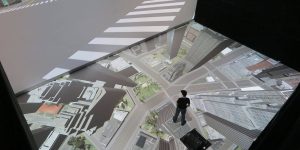
Tumcreate
The immersive, virtual and interactive 3D environment of Deep Space 8K as part of a gigantic scalable future project: As a VR research and development laboratory, the international research platform TUMCREATE offers impressive possibilities for presentation, collaboration and simulation for the development of a new infrastructure and mobility concept for the megacity of Singapore.
-
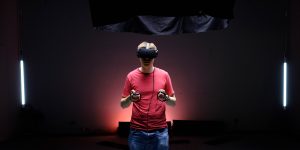
Homo Digitalis
How long will we actually still be human? Will we all, at some point, have virtual friends, enjoy sex with robots more than making love to a real person, and hack our own body? Homo Digitalis is a web series about the ultimate future question: What is the digital revolution doing with us human beings?…
-

The virtual reconstruction of the Synagogue in Linz
Destroyed by Nazi sympathizers in November 1938, the Linz Synagogue was brought back to life 78 years later and opened to the public as a virtual reconstruction by architecture student René Mathe in collaboration with the Jewish Museum Vienna and the Ars Electronica Futurelab.
-

ORI* – On the Aesthetics of Folding and Technology
This research examines how new design approaches that utilise advances in scientific origami, computation, robotics, and material experimentation, can influence the functional aesthetic of the art of oribotics. Situated in the context of contemporary electro/mechanical artworks and objects, and joining the fields of origami and robotics, oribotics is influenced by notions of folding scientifically and…
-
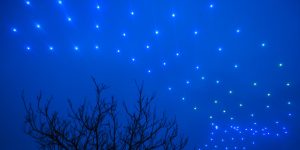
Drone100: Spaxels over Linz
Partnering with Intel ™ on the Drone 100 project paid off tremendously for the Spaxels crew in terms of technical impetus and media coverage. Following this momentous achievement and with the next Ars Electronica Festival coming up, it was high time to demonstrate just how far this undertaking had come at the very spot where…
-
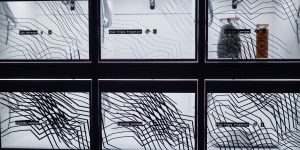
SAP Data Kitchen
The Ars Electronica Futurelab assisted SAP in designing a meeting place for innovative start-ups based on the model of the Hana Café in Palo Alto. The so-called Data Space, which would take shape at Rosenthalerstraße 38 in the center of Berlin, features two storeys of which the first floor is composed of an event space…
-
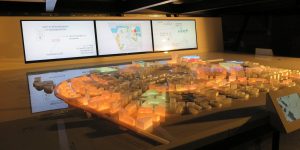
Aspern Skizzentisch
In the role of a scientific partner of the Technical Museum Vienna, the Ars Electronica Futurelab is advisory and realizes projects within the scope of an exhibition-series “Weiter_Gedacht_” (one step further). In the case of the first of three events between 2016 and 2021, the title “Die Zukunft der Stadt” (The urban future) called for…